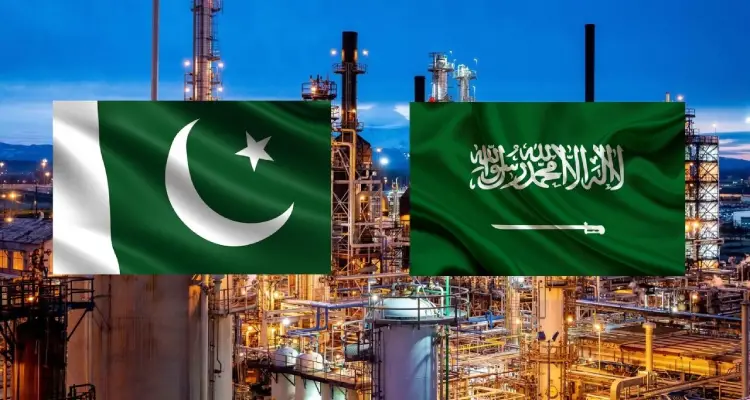
$10 Billion Saudi Investment Set to Arrive Soon in Pakistan
Pakistan is actively working with Saudi Arabia for a possible investment of about $10 billion in the oil refining industry, according to acting Federal Minister for Energy, Power, and Petroleum Muhammad Ali. He believes that their efforts will pay off in a few months.
Speaking with the media on the fringes of "The Future Summit - The Big Picture" on Wednesday, the minister refuted the notion that nothing substantial would come out of the meetings. "In one to two months, you will see (meaningful) progress," he declared.
Ali maintained that there was no slowdown in Saudi Aramco investment plans for Pakistan and that progress was being made steadily. "This is a large-scale $8–10 billion investment project...funding structure, policy framework, investment—all of these things take time."
The minister added in response to a question that Aramco will choose the investment location, such as whether to build a multibillion-dollar refinery in Hub or Gwadar. He clarified, saying, "Aramco will decide the location of investment—not Pakistan."
Saudi Crown Prince Muhammad bin Salman had announced new investment projects worth $21 billion during his visit to Islamabad in February 2019. The $10 billion refinery project was one of them.
Aramco has declared its intention to establish a refinery that can produce 450,000 barrels of oil per day.
Speaking earlier at the conference opening session, Ali urged the country to concentrate on two long-term goals—increasing export revenue and recording the unofficial economy—in order to emerge from the current financial and economic crisis.
In addition to correcting economic ailments including a volatile rupee-dollar exchange rate, high interest rates, heavy borrowing, and a rising fiscal deficit, these two goals will result in the much-needed structural reforms.
The minister criticized the fact that Pakistan had not advanced due to abrupt policy shifts and policy inconsistencies, and that poor policies and poor decision-making in the past had produced a multifaceted dilemma.
He pointed out that tax and other favours for millions of businesses in the informal sector were discouraging the culture of corporatisation.
The nations that formed alongside Pakistan "are 10 to 20 years ahead of us while we have regressed," he said, casting doubt on the distribution of funds for state-owned businesses.
Pakistan per capita income has dropped instead of growing while tax-to-GDP (gross domestic product) ratio has remained in single digit.
He highlighted that although energy has become a global requirement, 50 million people in Pakistan—nearly 20% of the country population—were still living off the grid or without access to electricity. He said, We learned lessons, but we did not apply them.